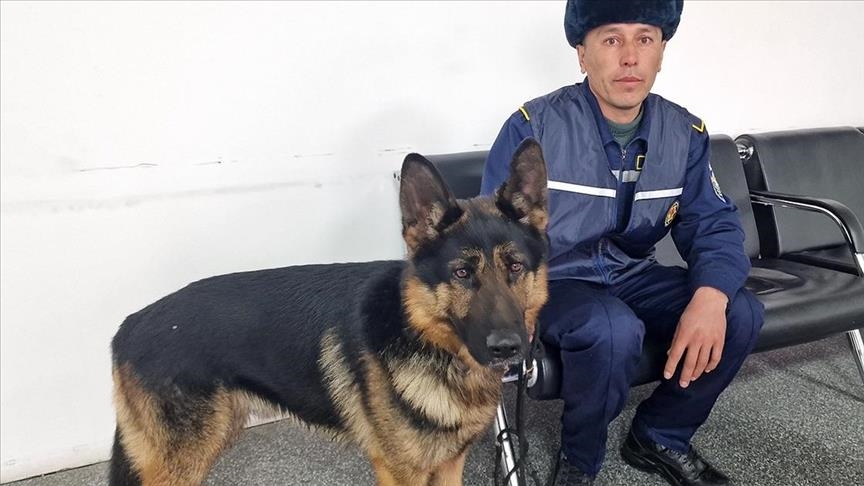

By Anadolu Agency
TASHKENT
Trained dogs played a very crucial role during search and rescue operations in quake-hit Türkiye, said a member of the rescue team from Uzbekistan.
“The dog almost senses that the person under the debris is alive or dead, and reacts accordingly. If it detects a person alive under the debris, it barks louder, and if it detects dead bodies, it groans silently. They were very helpful in finding survivors,” Ubeydullah Rozmetov told Anadolu upon his return to Uzbekistan.
Rozmetov, who was a part of the Uzbek rescue team sent to Türkiye, which he noted was comprised of five specially trained dogs, said this was the first time he worked in the wreckage of buildings destroyed in earthquakes of this magnitude.
“It was a very difficult situation. It was the first time we faced the consequences of such devastating earthquakes. While we were continuing our rescue efforts, we also experienced an earthquake. After this earthquake we experienced, we understood the situation of the earthquake victims better,” Rozmetov said.
“It was very scary. It was the first time in my life that I experienced such an earthquake,” he said, while describing a 6.3 magnitude quake that hit the region as he and his team were conducting search and rescue operations.
Noting that his team acted very quickly during search and rescue efforts, Rozmetov said they made an effort to save as many lives as possible and that his dog, named Baron, was also constantly searching for people stuck under the debris.
He also said that the trained dogs generally do not have trouble detecting people under the debris, but they had difficulties this time around because many buildings were destroyed in these earthquakes.
More than 46,100 people were killed in Türkiye by earthquakes that struck on Feb. 6, according to officials.
The magnitude 7.7 and 7.6 quakes, centered in Kahramanmaras, rocked 11 provinces, including Adana, Adiyaman, Diyarbakir, Gaziantep, Hatay, Kilis, Malatya, Osmaniye, Elazig, and Sanliurfa.
Around 13.5 million people in Türkiye have been affected, as well as many others in northwestern Syria.
We use cookies on our website to give you a better experience, improve performance, and for analytics. For more information, please see our Cookie Policy By clicking “Accept” you agree to our use of cookies.
Read More